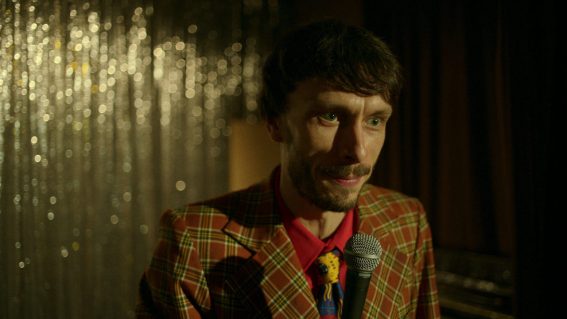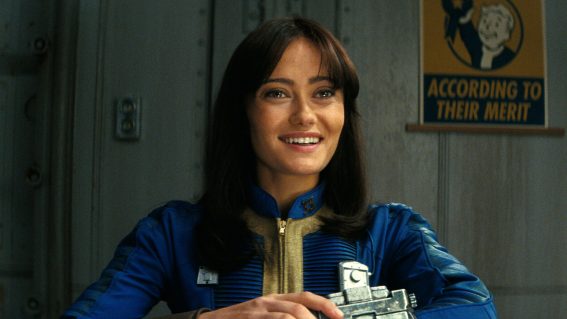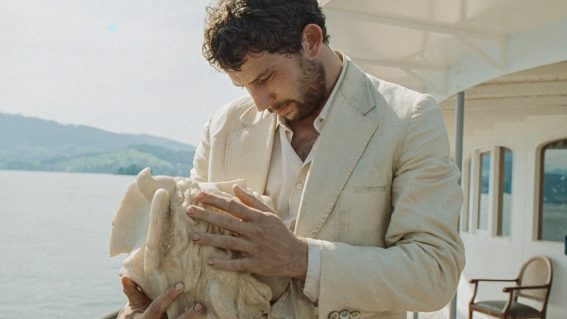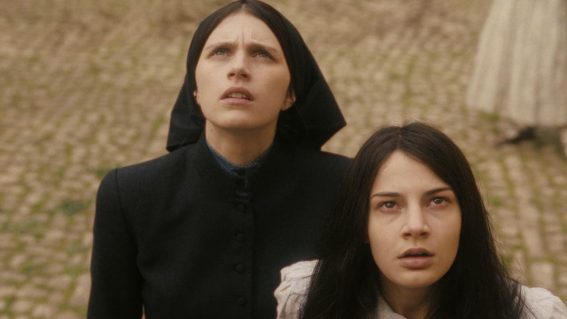Hitchcock’s psychodrama is missing from Ben Wheatley’s glossy take on Rebecca

Lily James stars alongside Oscar nominees Armie Hammer and Kristin Scott Thomas in Ben Wheatley’s adaptation of Daphne du Maurier’s mystery thriller novel Rebecca (previously filmed by Alfred Hitchcock), which arrives on Netflix on October 21. Unfortunately, writes Amelia Berry, this version of Rebecca lacks Hitchcock’s Freudian psychodrama, du Maurier’s gothic desperation—and even Wheatley’s own trademark verve.
Ben Wheatley’s Rebecca is not a remake. The director has insisted that, rather than remaking Alfred Hitchcock’s 1940 masterpiece, he has drawn directly from Daphne du Maurier’s original 1938 novel. Somehow, though, this only serves to make this choice of material all the more baffling, as Wheatley eschews both Hitchcock’s Freudian psychodrama and Daphne du Maurier’s gothic desperation in favour of glossy romance and costume drama pomp.
Taken as a straight ahead period romance romp, Rebecca is not at all bad. Its real issue is that it stands in the shadow, not only of Hitchcock’s much lauded adaptation, but also in the shadow of Wheatley’s own esteemed catalogue. Neither the inspired surrealism of A Field in England (2013) nor the stylish giallo darkness of Free Fire (2016) are present, his trademark verve only shining though for a handful of moments.
Arriving at Manderley, deep in rural Cornwall, the colour palette shifts from Mediterranean gold to wet English grey-green, and Pentangle’s “Let No Man Steal Your Thyme” begins to play, a stark contrast to the retiring saccharine strings we’ve heard so far. Later, at the film’s thematic climax, the giddy mania of the Manderley Ball is rendered with a frantic and vital beauty. Much of the rest of the film is good, dramatic, engaging, but only these scenes live up to what one might want from Ben Wheatley’s Rebecca.
The film tells the story of a nameless protagonist who is whisked off her feet in Monte Carlo by the dashing and wealthy Maxim de Winter (Armie Hammer channeling sulky opulence), owner of Manderley, a famous mansion house. After their marriage, they return to Manderley where the new Mrs. de Winter becomes increasingly preoccupied with Maxim’s first wife, Rebecca, who died in a mysterious boating accident. In typical gothic novel style, what follows is twists upon twists upon scandal. At its core though, Rebecca is a story about loneliness, obsession, and alienation. Why then, in the film’s only truly terrible moment [SPOILER] do screenwriters Jane Goldman and Joe Shrapnel & Anna Waterhouse tack on a new happily-ever-after ending, feeling very much like the set-up for the world’s least necessary sequel?
The use of Cornwall’s stark cliffs and rain-soaked farmland is dramatic and expressive. The 1930s period costuming is immaculate. The juxtaposition of aristocratic English clutter with bold Art Deco make for sumptuous and dynamic interiors. There are fantastic performances, not just from Lily James as the film’s nameless lead, but also Kristin Scott Thomas as unhinged head housekeeper Mrs. Danvers and Sam Riley as the perfectly despicable cad, Jack Favell. After all this though, while Rebecca may be a decent film, it’s a lousy adaptation, trading in stark pathos for run-of-the-mill romanticism.













